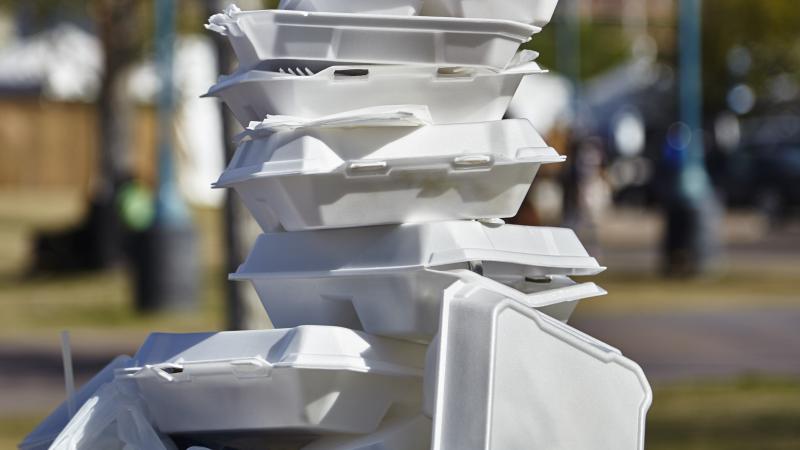Rensselaer team to investigate plastic polymers that are less likely to wind up in landfills
June 30, 2020

TROY, N.Y. —The U.S. Environmental Protection Agency estimates that landfills received 26.8 million tons of plastic in 2017, underscoring the need for a recycling process that is more efficient, effective, and affordable.
With the support of a grant from the National Science Foundation, chemical engineers from Rensselaer Polytechnic Institute aim to develop a new polymer that can replace polystyrene, a commonly used plastic that is inexpensive and easy to make — but is difficult to break down into its original components for reuse, a process called depolymerization.
“One of the problems is that polystyrene is rarely used in its pure form, which makes it harder to be re-used,” said Sangwoo Lee, an assistant professor of chemical and biological engineering, who is leading this research effort. “We aim to establish a new class of polymer that is still tough and clear but can be easily depolymerized and converted into raw materials for reuse.”
The researchers will examine potential polymers that may be suitable for use in plastic products. They will develop a library of recyclable copolymers that they will synthesize, characterize, study, and evaluate as polystyrene substitutes.
The team is looking for materials that will depolymerize on their own when a specific chemical is introduced. In order for such a solution to be adopted, it must be practical and affordable.
This effort builds upon an exciting finding Lee and his team came upon as they were developing a polymer membrane to use in energy conversion. The membrane they developed kept breaking down in a systematic way, prompting Lee and his lab to explore how else it could be used. That led to this current pursuit of an economical and environmentally friendly solution to plastic reuse.
“What’s exciting about this research is that we will establish a new approach to convert used plastic into raw material,” Lee said. “It will be economical, which is one of the elements that’s missing in the process.”